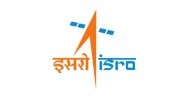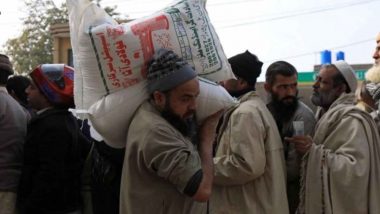Islamabad, April 16: Pakistan's worsening outlook can only lead to one conclusion which is fast-growing distress for the mainstream population. This is so because Pakistan's increasingly toxic politics fuel unprecedented uncertainty, reported The News.com.
It is an outcome that flows from the government in Islamabad is controversially pushing against the Supreme Court, effectively seeking to neutralise every recent verdict of political consequence from the highest judicial forum. Pakistan Economic Crisis: Cash-strapped Country Struggling to Pay International Airlines.
The recent moves are driven by a clear political agenda, which effectively seeks to delay the next round of federal and provincial elections for as long as possible, The News.com reported. Pakistan Economic Crisis: Food Shortage Makes Citizen Go Frenzy Over Free Flour, Video of People ‘Looting’ Truck Goes Viral.
Meanwhile, the visible minority status of the National Assembly members, who passed the latest bills in the absence of the opposition, has only undermined the democratic character of the entire exercise.
The government's political agenda ironically stands in very sharp contrast to Pakistan's crisis-laden economic outlook. Even the promise of three billion dollars or more in combined support from Saudi Arabia and the United Arab Emirates will only promise to keep Pakistan barely afloat during the current fiscal year to June, The News.com reported.
And then, the need to pay around USD 25 billion during the next fiscal year in foreign debt payments has already set the course for Pakistan entering another tough loan programme from the IMF.
Meanwhile, the delay in the IMF's disbursement of its next tranche of about USD 1 billion is partly fueled by Islamabad's controversial choice to grant a new petroleum subsidy, an apparent populist move in a likely election year, The News.com reported.
The exercise stands at risk of being abused with subsidised consumers picking up the fuel and selling it in the black market without hindrance.
At the same time, an unprecedented economic slowdown is set to haunt Pakistan's future from the very near term onwards. Over the past 18 months, domestic interest rates have raced by 14 per cent to the present 21 per cent, setting the course for suppressed borrowing by the mainstream, The News.com reported.
The financing of consumer items, notably automobiles has now come to a near halt, only to further undermine the domestic vehicle industry. And with inflation galloping away at 35 per cent while food inflation is at over 45 per cent according to the last estimates, the prospect for economic stability is near paralysed.
According to the IMF's latest estimate, growth in Pakistan is expected to clock in at half a per cent during the present financial year that ends in June. With Pakistan's outlook surrounded by the worst tsunami in years, the case for a fresh political mandate has become overwhelmingly compelling, The News.com reported.
Though the authorities in Islamabad continue to pat their backs for securing almost 10 billion dollars in external support at a global conference for flood victims in Geneva, the road ahead will be bumpy. Translating global commitments into changes on the ground requires a range of near-perfectly executed policies.
This challenge adds to the widespread incidence of poverty. On the one hand, Pakistan's turbulent politics continue to raise enough friction to fuel the continuous risk of an eventual default on debt payments.
The beginning of the end to Pakistan's ongoing political turmoil will only come from a halt to the government's battle against the Supreme Court, followed by a clear path to a free and fair electoral process.
(The above story is verified and authored by ANI staff, ANI is South Asia's leading multimedia news agency with over 100 bureaus in India, South Asia and across the globe. ANI brings the latest news on Politics and Current Affairs in India & around the World, Sports, Health, Fitness, Entertainment, & News. The views appearing in the above post do not reflect the opinions of LatestLY)













 Quickly
Quickly


